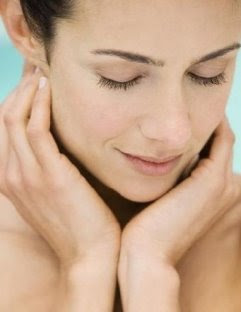Tuesday, May 20, 2008
Paula's B-List: Playing a Supporting Role to Help Skin Look its Best
 Green Tea
Green TeaGreen tea works beautifully to reduce inflammation, provides powerful antioxidant benefits, and can reduce the harmful effects of sun exposure. Current research indicates that EGCG, an extract of green tea, can prevent collagen breakdown and reduce UV damage to skin. EGCG also has been shown to inhibit several types of MMP's, which means that EGCG can protect skin from aging. Green tea is easy to find in skin-care products, but you need to make sure it's present in a sufficient amount (if it is listed after the fragrance or preservatives, it likely won't amount to much for your skin). Studies on animals have shown that green tea also has an anticancer/antitumor effect on multiple organs, including skin.
Soy Isoflavones/Extract
Soy and its components are reliable antioxidants for skin, and have proven anti-inflammatory effects, which reduce signs of irritation. The increased use of soy extract in anti-aging products is largely due to studies showing that genistein (a component of soy) has a collagen-stimulating effect and that various compounds in soy affect skin thickness and elasticity. Other studies have shown that applying soy extract to animal skin and reconstituted human skin mitigates UVB damage and prevents DNA damage. Any ingredient that protects skin from UV light is worth seeking out!
Pomegranate
Pomegranate and its extracts have antioxidant and anticancer properties that, while not conclusively demonstrated on human skin, show promise in animal and in vitro studies. Pomegranate is rich in phytochemicals, compounds that exhibit a wide range of beneficial effects, particularly when consumed orally. Topical application of products containing pomegranate may improve the appearance of wrinkled skin by reducing inflammation and forestalling further damage.
Ceramides
Ceramides are part of skin's intercellular matrix, the "glue" that holds skin cells together and helps skin maintain its appearance. When the skin's barrier is compromised by damage from the sun, climate, irritating procedures or products, or other sources, the level of ceramides decreases. The skin's ceramide content can be replenished by using products that contain ceramides.
Linoleic/Linolenic Acids/ Phospholipids
All of these fatty acids replenish skin's intercellular matrix, preserving its appearance. In addition, all of them function as cell-communicating ingredients, working to "tell" the appropriate skin cells how to function in a healthier manner.
Thanks Paula!
Labels: ceramides, green tea, linoleic acid, Paula Begoun, Pomegranate, soy isoflavones
Post a Comment